The 8 Biggest Lies You’ve Been Told About Detoxing
Detoxing has become a buzzword in health and wellness circles, but amidst the myriad of trends and tips, the truth can often get lost. In this listicle, we’ll debunk the 8 biggest lies you’ve been told about detoxing. From misconceptions about cleanses to the myths surrounding superfoods, you’ll discover what really works and learn how to adopt a healthier lifestyle based on facts, not fads. Say goodbye to the confusion and hello to clarity as we unveil the truths behind detoxing!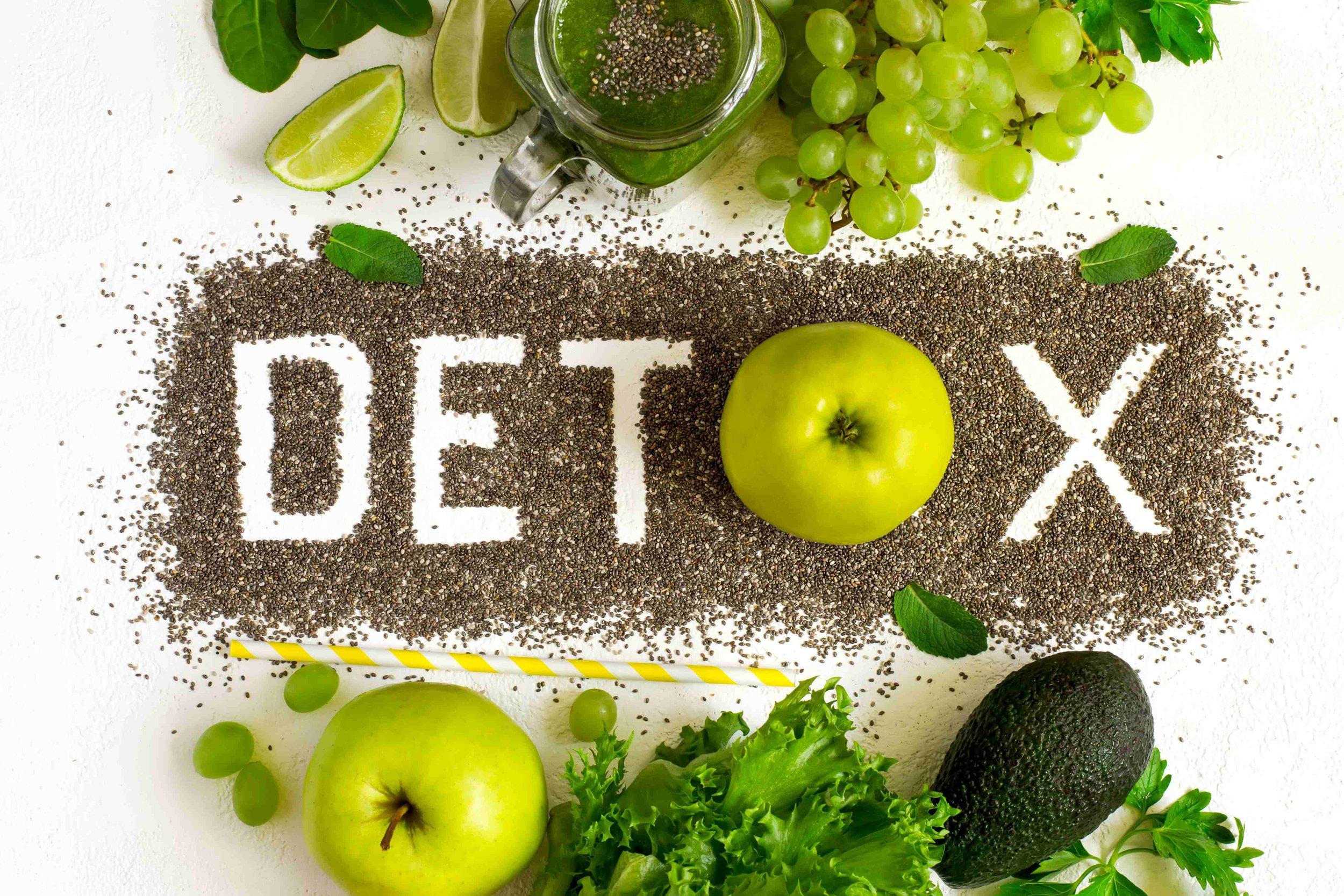
1) Detox diets can flush out toxins from your body – Your liver and kidneys already do this perfectly well without any extreme diets
Many people believe that following a detox diet will help rid their bodies of harmful substances, but the truth is that your liver and kidneys are already highly effective at detoxification. These organs work tirelessly around the clock to filter and eliminate toxins from your bloodstream. They do this through a complex system of enzymes and metabolic processes, ensuring that waste is processed and expelled efficiently.
Consider the following key points:
- Your body is naturally equipped: Your liver metabolizes drugs and toxins, while kidneys filter waste from your blood, maintaining a delicate balance.
- Detox diets can be extreme: Many detox regimens can lead to nutritional deficiencies or imbalances, ultimately doing more harm than good.
- Hydration is vital: Simply drinking plenty of water supports your body’s natural detoxification processes without the need for fad diets.
In fact, strict detox diets often limit essential nutrients that your body needs to function optimally. Instead of turning to these extreme measures, focus on cultivating healthy eating habits that align with your body’s intrinsic detox capabilities. Balance and moderation truly pave the way for a healthy lifestyle without the need for heavy detoxification schemes.
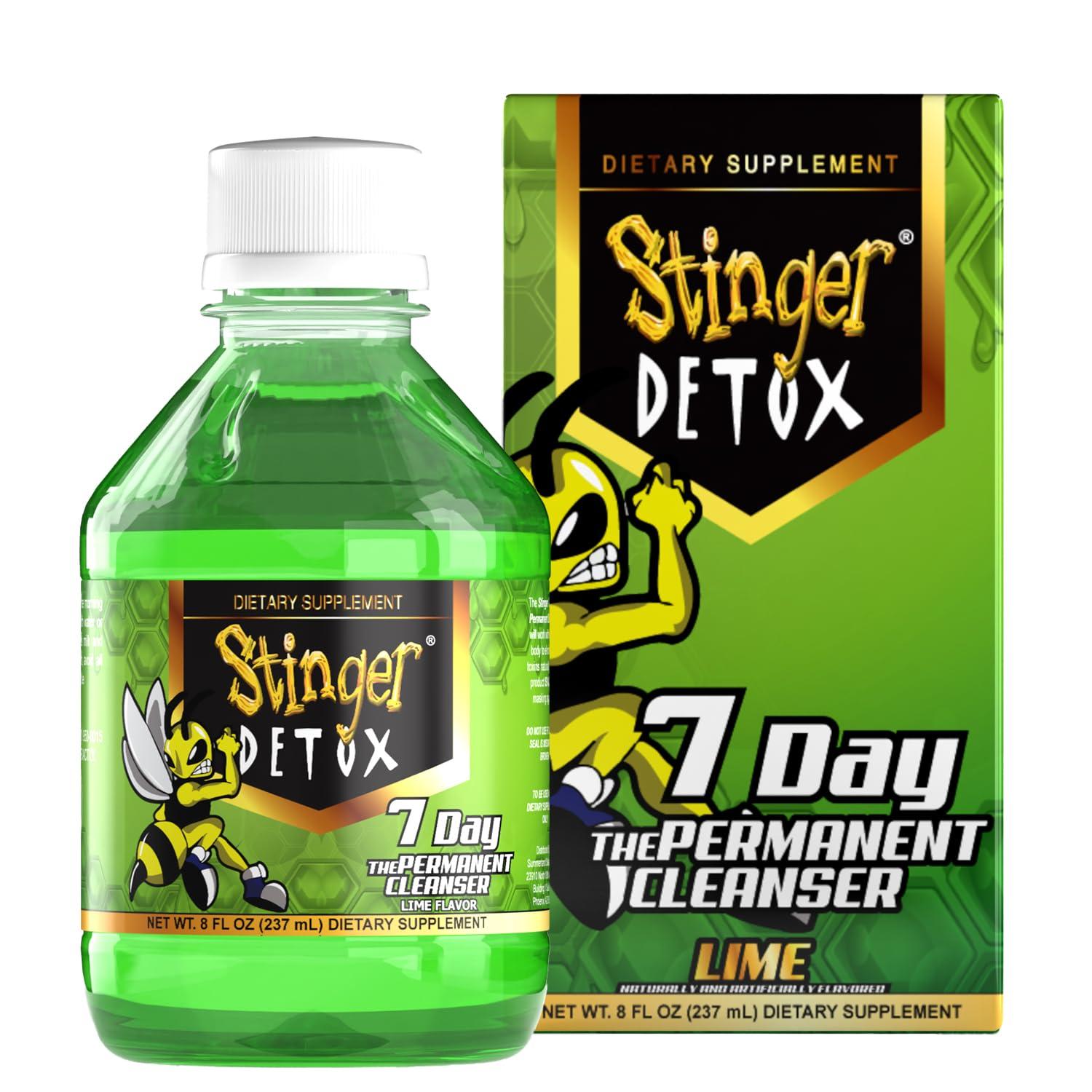
2) You need special detox products to be effective – Nature provides everything you need through a balanced diet rich in fruits, vegetables, and water
Many people believe that achieving a proper detox requires expensive products or complex dietary supplements. However, the truth is that nature has provided us with all the tools we need to cleanse our bodies through simple, wholesome foods. A balanced diet that emphasizes the consumption of fruits, vegetables, and water can work wonders for our health and well-being.
Essential nutrients found in natural foods support the body’s detoxification processes effectively. Consider incorporating the following into your daily routine:
- Leafy Greens: Spinach, kale, and Swiss chard are rich in chlorophyll, which helps eliminate toxins.
- Fruits: Citrus fruits like lemons and oranges boost liver function and provide hydration.
- Vegetables: Beets and carrots enhance bile production, aiding digestion and detoxification.
- Herbs and Spices: Ginger and turmeric offer anti-inflammatory properties that support liver health.
- Water: Sufficient hydration is crucial for flushing out impurities from the body.
By focusing on whole foods, your body can naturally detox without relying on trendy products. Creating a colorful plate filled with a variety of these nutrient-dense options not only nourishes you but also empowers your body to thrive. Here’s how a day of eating can look:
| Meal | Foods |
|---|---|
| Breakfast | Smoothie with spinach, banana, and almond milk |
| Lunch | Quinoa salad with tomatoes, cucumbers, and olive oil |
| Snack | Carrot sticks with hummus |
| Dinner | Grilled salmon with steamed broccoli and sweet potatoes |
Incorporating these elements into your diet serves not only as a means of detox but also as a path to overall wellness. Nature has indeed provided everything we need for effective cleansing; it’s time to embrace it!
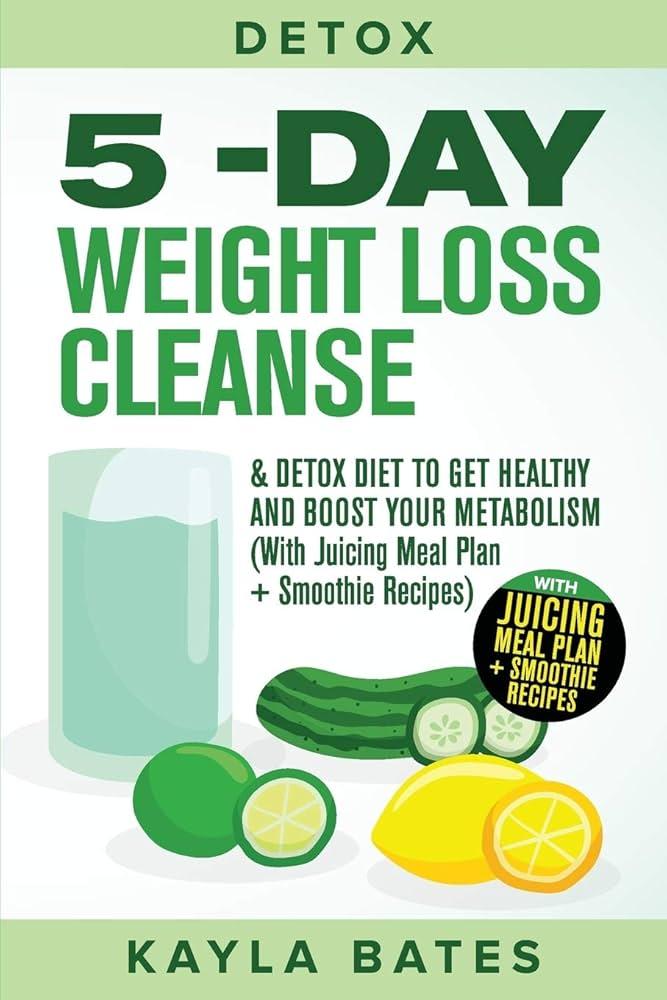
3) All detoxes result in quick weight loss – Most weight loss during detoxes is just water weight, which returns once you resume normal eating
Many people embark on detox diets with the hope of shedding pounds quickly. However, what often happens during these cleanses is a significant loss of water weight rather than actual fat loss. This initial drop on the scale can be misleading and does not represent a sustainable or healthy approach to weight loss. Once you return to a regular eating pattern, it’s likely those pounds will return just as swiftly as they disappeared.
It’s essential to recognize that the body’s natural metabolism functions best when nourished with a balanced diet. Instead of focusing on temporary results, consider the following:
- Hydration matters: Detox diets often involve reduced calorie intake and increased fluid consumption, leading to weight loss primarily from water.
- Muscle loss vs. fat loss: Rapid weight loss can also mean loss of muscle mass, impacting your metabolism negatively.
- Sustainability is key: Long-term weight management is achieved through balanced nutrition and regular physical activity, not crash diets.
Here’s a simple table to illustrate the difference between water weight and fat loss during detox diets:
| Type of Weight Loss | Duration | Health Impact |
|---|---|---|
| Water Weight | Short-term | Temporary & reversible |
| Fat Loss | Long-term | Permanent & healthy |

4) You’ll feel great after a detox – Many people experience fatigue, irritability, or headaches during detoxes due to drastic dietary changes
While the idea of feeling light and refreshed post-detox is enticing, it’s important to acknowledge that the initial days can be quite challenging for many. Commonly cited symptoms such as fatigue, irritability, and headaches can arise from the abrupt shift in dietary habits. Your body may take time to adapt to a lower intake of familiar substances, particularly if those substances include caffeine or sugar.
During this transition, it’s crucial to stay hydrated and maintain a balanced approach. Many detox plans overlook nutritional adequacy, which can exacerbate feelings of discomfort. Instead of focusing solely on restrictive diets, consider a more gradual approach that includes a variety of nutrient-rich foods. Here are a few suggestions to make your detox journey smoother:
- Hydration: Drink plenty of water to flush out toxins.
- Mindful Eating: Incorporate whole foods gradually instead of sudden restrictions.
- Consistent Rest: Prioritize sleep and relaxation to help your body recover.
It’s essential to listen to your body’s signals. If symptoms persist or worsen, consider adapting your detox plan to ensure it supports your overall well-being. Remember, effective detoxing doesn’t need to be a harrowing experience; nurturing your body can lead to a more pleasant journey.
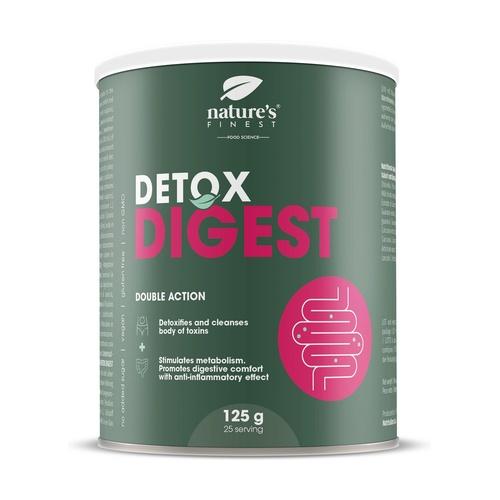
5) Detoxing helps improve digestion – While some people may feel lighter, a temporary cleanse doesnt equate to long-term digestive health
When it comes to the idea of feeling lighter and less bloated after a detox, many people may be quick to equate this temporary relief with improved long-term digestive health. However, the reality is that a short-term cleanse does not address the root causes of digestive issues and may even disrupt your normal gut function. Here are some reasons why:
- Short-Term Relief: A detox may provide immediate feelings of lightness, but these changes are often temporary and do not last long after returning to regular eating habits.
- Potential Nutrient Deficiencies: Many detox plans restrict essential nutrients, which can lead to digestive disturbances and long-term health issues.
- Altered Gut Flora: Extreme cleanses can upset the balance of good bacteria in your gut, essential for healthy digestion.
Moreover, while a detox might seem like a quick fix, it does not foster sustainable digestive health practices. Instead of focusing on cleansing, adopting a well-rounded diet that includes fiber-rich foods, fermented products, and plenty of water is crucial for maintaining a healthy digestive system. Remember, digestion is a complex process that requires more than just a restrictive regimen; it thrives on consistent, nourishing habits.
| Healthy Habits | Benefits |
|---|---|
| High-Fiber Foods | Promotes regular bowel movements |
| Fermented Foods | Supports gut bacteria balance |
| Hydration | Aids in nutrient absorption and digestion |
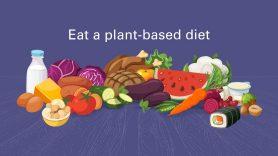
6) You should detox every few months – Frequent detoxes can disrupt your bodys natural balance and lead to nutrient deficiencies
- Detoxing too frequently can disrupt your body’s meticulously crafted balance. Each organ in our body plays a specific role in maintaining homeostasis, and sudden detoxes can confuse these systems.
- A strained detox regimen can lead to *nutrient deficiencies*, as your body may not get the essential vitamins and minerals it requires for optimal functioning. Prolonged detoxing can impair your digestive system, affecting gut health and nutrient absorption.
- In many cases, the body has its own detoxification mechanisms, primarily through the liver and kidneys. Relying on regular detoxes can undermine these natural processes, making it harder for your body to detoxify effectively over time.
| Consequences of Frequent Detoxing | Effects on the Body |
|---|---|
| Digestive Issues | Impaired digestion and nutrient absorption |
| Nutrient Deficiencies | Inadequate intake of essential nutrients |
| Metabolic Slowdown | Decreased metabolic efficiency |
| Harm to Gut Flora | Imbalance in healthy gut bacteria |
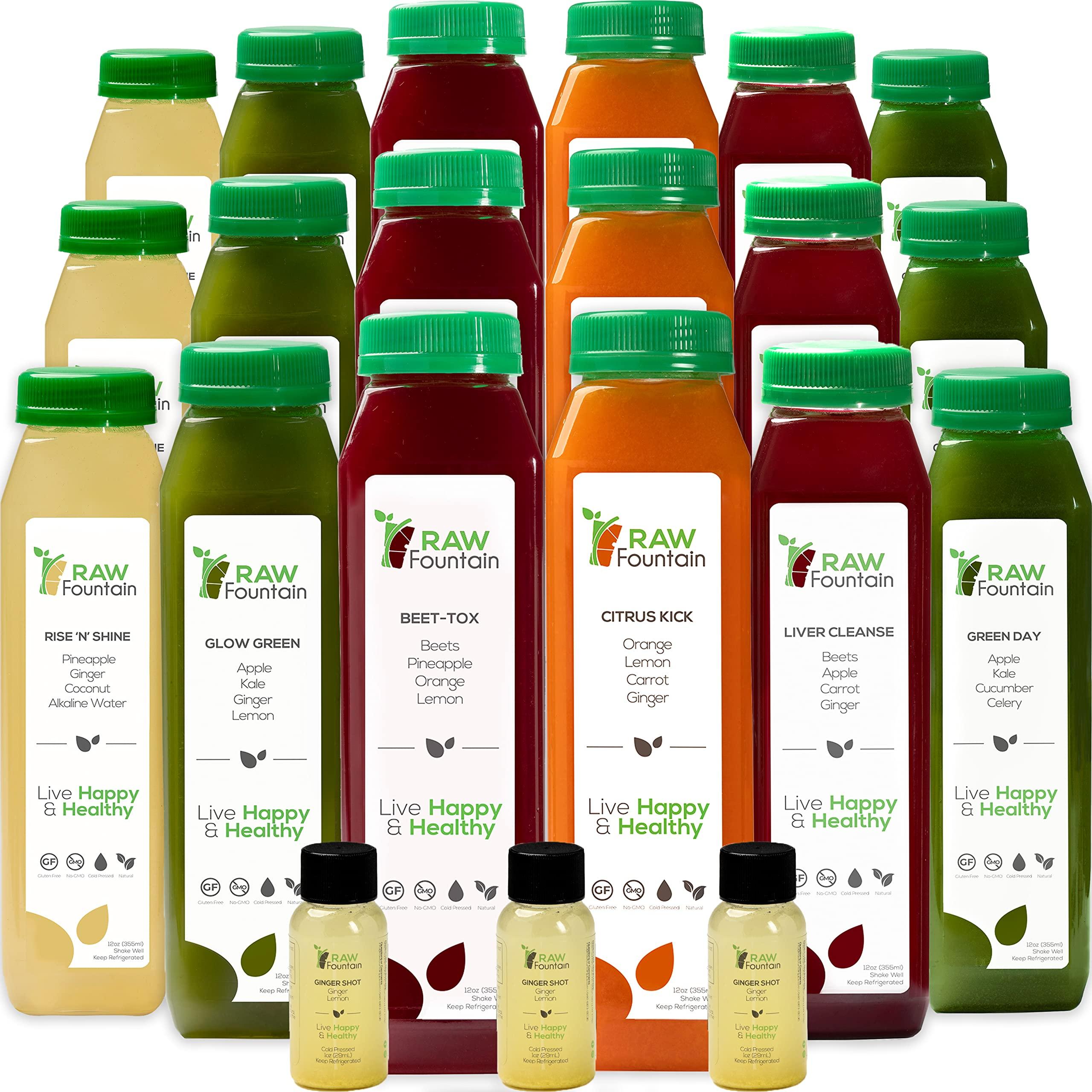
7) Juice cleanses are the best way to detox – Juices lack essential nutrients and fiber, which are crucial for overall health and digestion
Many people believe that juice cleanses are a surefire way to detox their bodies, but the reality is that they often miss the mark on essential nutrients. While juice can provide a temporary boost of vitamins, it typically lacks critical nutrients like protein and healthy fats, which our bodies need to function optimally. Additionally, the absence of fiber in juices can lead to digestive issues, making it crucial to consider the balanced intake of whole foods.
Moreover, relying solely on juices can create an unbalanced diet that’s unsustainable in the long run. The human body requires a diverse array of nutrients that juice alone simply cannot provide. Instead of cleansing, this approach may leave individuals feeling fatigued and deprived. Consider alternatives that promote overall health and wellness, such as:
- Whole fruits and vegetables: Packed with fiber, they help digestion and provide lasting energy.
- Lean proteins: Essential for muscle repair and overall bodily functions.
- Healthy fats: Important for brain health and hormone production.
| Juice Cleanses | Whole Foods |
|---|---|
| Low in fiber | High in fiber |
| Lacks protein | Includes lean proteins |
| Temporary energy spike | Sustained energy levels |
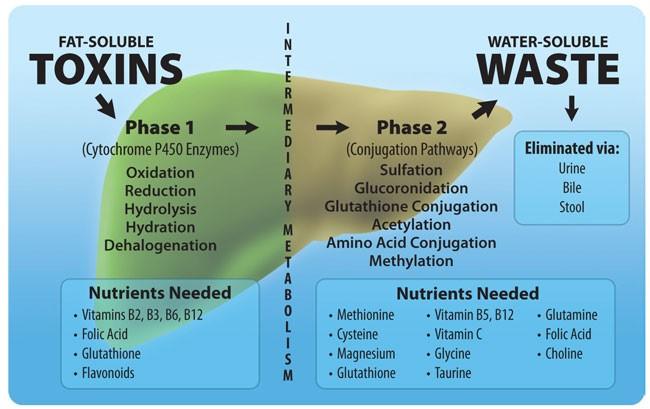
8) Detoxing removes heavy metals and chemicals – The bodys natural systems, especially the liver, are far more effective at dealing with these substances than any detox regimen
Many detox regimens claim to effectively rid your body of heavy metals and chemicals, suggesting that they enhance your health and vitality. However, the human body is equipped with highly sophisticated systems, particularly the liver, which are capable of managing toxins far more efficiently than any external detox program. While you may feel a short-term buzz from these detox diets, they often don’t address the underlying belief that we need to “cleanse” ourselves from toxins.
Consider the following points:
- The liver’s role: This remarkable organ processes and filters out toxins naturally. It transforms harmful substances into less harmful ones that can easily be eliminated through urine or bile.
- Natural detoxification: The body relies on our kidneys, intestines, and skin to facilitate the removal of waste, ensuring we maintain a healthy balance without the need for drastic measures.
- Unproven methods: Many products marketed as detox solutions lack scientific backing, often leading consumers on a fruitless journey that may disrupt their body’s natural equilibrium instead of supporting it.
Moreover, when it comes to heavy metal exposure, the idea that short-term detoxing can completely remove these substances is misleading. Depending on various factors such as the type of metal and duration of exposure, these elements often require specific medical interventions for removal. Implementing a wholesome, balanced diet and staying hydrated is far more effective for your overall well-being than limiting yourself to a temporary detox fad.
In Closing
And there you have it—eight common misconceptions about detoxing debunked! Remember, the key to a healthier lifestyle isn’t found in quick fixes or fad detoxes, but in balanced eating and mindful choices. As you navigate the wellness world, stay informed, trust your body, and always seek out reliable information. Here’s to your journey toward true health!




